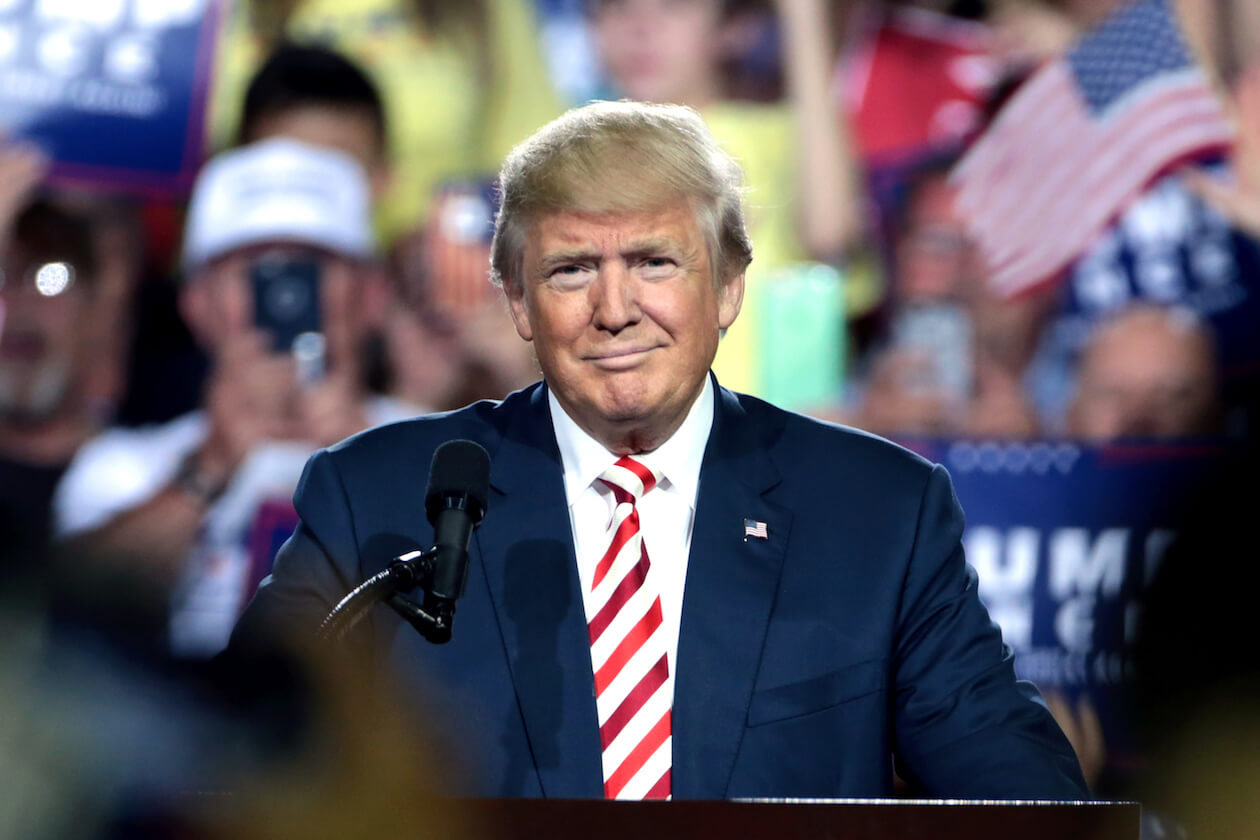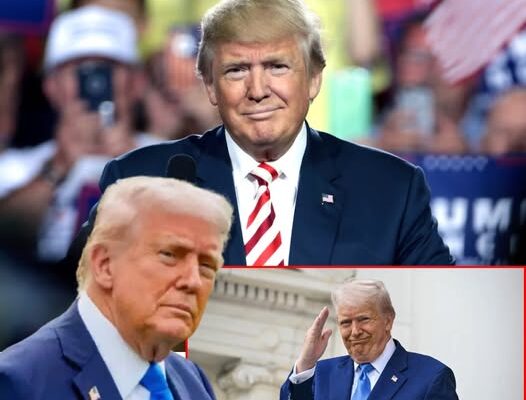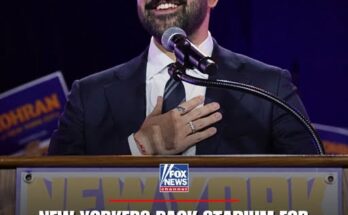
WASHINGTON — Back in Donald Trump’s first term, his staff decided they’d tuck into his briefing book a few letters from ordinary Americans who’d written to the White House.
Only certain letters made the cut, though.
Aides made a point of sending Trump the flattering mail while holding back the letters panning his work, a White House official in the last term said.
“Someone quite rightly thought that if we wanted to have any chance of him reading them consistently, it would be good if they were positive and praiseworthy,” the person said, speaking on condition of anonymity.
All presidents say they want to keep in touch with typical Americans; few succeed. Everything about the job conspires against unscripted encounters that can enlighten a president about what’s truly on people’s minds.
Armed guards shadow him while protective aides may shield him from bad reviews. Even the few souls who pierce the Bubble Wrap and get an audience with the president may find themselves too intimidated by the trappings of power to blurt out an unvarnished truth.
“When you are president, you are in a space where everyone comes to you, and most of them are people you’ve selected to come to you,” said Fred Ryan, who oversaw appointments and scheduling in Ronald Reagan’s White House. “And most people want to bring you good news rather than bad news.”
This time around, Trump is looking and sounding insulated from the voters who put him back in the White House. That’s a problem even for a second-term president who may have run his last campaign. Trump’s political strength flows from an emotional connection to a loyal base. If he’s perceived as oblivious to people’s day-to-day concerns, he’s at risk of losing a vital grassroots connection that is a source of Republican fealty.
“The president since entering politics has showcased a unique way of having his finger on the pulse of the American public,” Harrison Fields, a White House spokesman, said in an interview. “He stays connected through multiple public appearances in Middle America, reading correspondence, being a consumer of the news, and inviting everyday Americans to the White House and to campaign events.”
“While most presidents are driven by staged and stuffy political events, this president has preferred a more organic and authentic approach to connecting with the American people,” Fields added.
Surrounded by wealth
Trump’s travels suggest a homebody on a gilded perch.
By the end of May, he had spent 14 of his 18 weekends at one of his golf clubs or other properties. Over and over, he has returned to his Mar-a-Lago residence, a private club in Palm Beach where the membership fee is $1 million and guests applaud when he enters the restaurant.
Rallies have long been a way for Trump to connect with the “Front Row Joes” and other hardcore voters who travel hundreds of miles and camp out overnight to see him speak live and maybe grab a selfie with him on the rope line. Not having to worry about re-election, he’s cut back on rallies, holding just one since the day he was sworn in, versus four in the opening months of his last term.
“He needs to talk to more regular people and listen to them,” said Christopher Malick, 28, who works at a roofing company in Cleveland and said he voted for Trump in the last three elections. “He needs to be talking to people who aren’t just his inner circle.”
Billionaires run major parts of Trump’s government, and the well-connected get access.
Last month found the president at his golf club outside Washington, D.C., hosting a dinner for 220 crypto investors who’d bought into his meme coin, $TRUMP. The event was advertised as “the most exclusive invitation in the world.”
With some of the guests clutching their phones to trade on any market-moving news Trump might make, the audience dined on filet mignon and pan-seared halibut as protesters stood outside.
The coin was launched just a few days before Trump was sworn in. One of the guests at the event, Morten Christensen, who lives in Mexico, came away feeling the demonstrators had a point.
“If I was in his [Trump’s] position, I personally would not have done that,” Christensen, founder of the crypto company Airdrop Alert, said of the coin’s timing. “It’s just a bad look — right before you become the most powerful man in the world.”
Asked how he reaches the working people who elected him, Trump told NBC News’ “Meet the Press” last month: “I think I get out quite a bit.”
He mentioned a commencement speech he had given at the University of Alabama, hastening to add that he won the state handily in 2024.
Trump is also surrounded by wealthy top aides.
The world’s richest man, Elon Musk, carried out Trump’s plan to slash the the government workforce. A billionaire Wall Street executive, Howard Lutnick, is negotiating Trump’s trade deals; a billionaire hedge fund manager, Scott Bessent, is presiding over the U.S. economy; a billionaire real estate magnate, Steven Witkoff, is conducting high-level diplomacy.
Economic policies coming out of the Trump administration skew in favor of the rich, budget analysts say. The “big, beautiful bill” that Trump is trying to push through Congress mixes tax and spending cuts in ways that would shave income for the bottom tenth of the U.S. population by 2% in 2027, and raise it for the top tenth by 4% that year, according to the nonpartisan Congressional Budget Office.
At the same time, retailers like Walmart have cautioned that Trump’s tariffs will drive up prices, squeezing some of the low-and middle-class voters he peeled away from Democrats. Exit polls showed that in the 2024 election, those with family incomes under $50,000 favored Trump over Democrat Kamala Harris, 50%-48%.
Trump’s speaking style — raw and unrestrained — has proved a reliable political asset over the years. In this moment, his language may be widening the gulf between the nation and its leader. Defending his tariffs, Trump said children may have to make do with “two dolls instead of 30,” a remark that some saw as insensitive.
In a focus group, a Wisconsin swing voter who supported Trump in the last election told the research company Engagious that Trump’s comment about dolls reminded him of Marie Antoinette, the 18th-century French queen associated with the comment “Let them eat cake.”
“It rubbed me the wrong way when he said that,” the 49-year-old Wisconsin man said. “It just seemed like a disconnect with the average American person.”
Trump’s fascination with the word “groceries” may be another disconnect. “It’s such an old-fashioned term, but a beautiful term: groceries,” he said at the Rose Garden event where he announced a series of steep foreign tariffs, later postponed. “It sort of says a bag with different things in it.”
For most Americans who shop for the stuff, there’s nothing old-fashioned or particularly beautiful about groceries; they’re a necessity.
Same with a stroller. But Trump failed to summon the word when talking about prices last month on Air Force One: “The thing that you carry the babies around in,” he called it.
How the most powerful man in the world tries to appear the everyman
Various presidents used different methods to avoid being cocooned.



